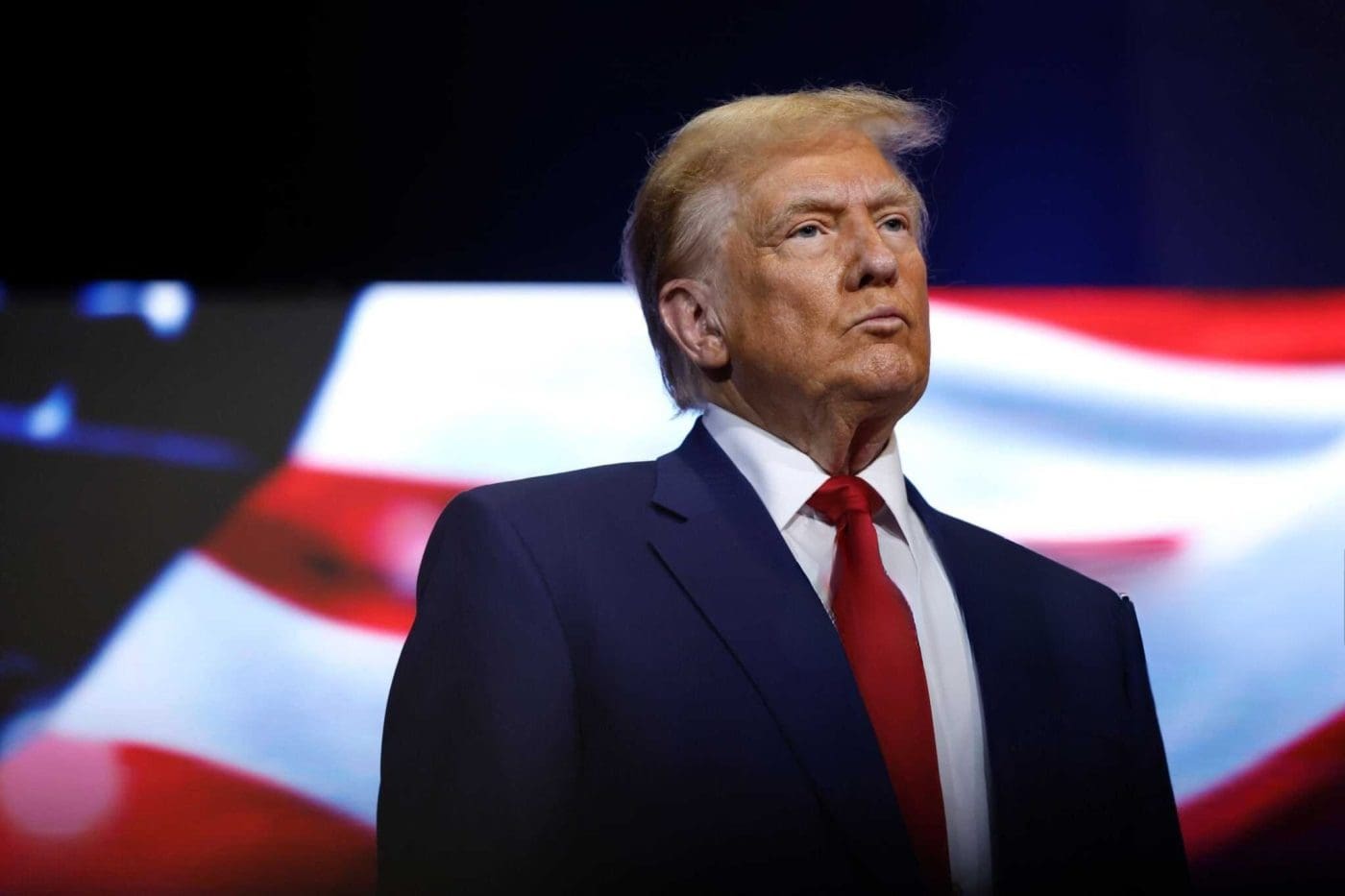UNITED States President Donald Trump’s decision to not exempt Australia from US tariffs on steel and aluminium has elevated red meat industry concerns about forecast action against ag product imports into the US.
 And Meat & Livestock Australia is monitoring the situation, but is yet to model the impact of tariffs on the Australian red meat industry, the MLA Sheep Industry Projections webinar was told today.
And Meat & Livestock Australia is monitoring the situation, but is yet to model the impact of tariffs on the Australian red meat industry, the MLA Sheep Industry Projections webinar was told today.
The Trump administration recently forecast it would impose tariffs on Mexican and Canadian ag products from 2 April; however no further details have been released.
After the White House confirmed today that it is not granting Australia or any other nation an exemption from tariffs imposed from today, Australian Prime Minister Anthony Albanese said the 25 percent tariff decision on steel and aluminium was concerning and “entirely unjustified.”
“This is against the spirit of our two nations’ enduring friendship and fundamentally at odds with the benefits that our economic partnership has delivered over more than 70 years.
“Australia has no tariffs on goods from the United States and of course we have a free trade agreement with the United States.”
Mr Albanese said Australia has a close relationship with the United States.
“But friends need to act in a way that reinforces, to our respective populations, the fact that we are friends,” Mr Albanese said.
“This is not a friendly act. But it is imposed on every country, that is important,” he said.
Mr Albanese said the federal government would continue to put forward a very strong case for an exemption, but noted this could take months.
He said Australia would not retaliate with reciprocal tariffs, but said the US president’s tariffs and escalating trade tensions were a form of “economic self-harm” and a recipe for slower growth and higher inflation.
NFF supports a considered and measured approach
National Farmers’ Federation president David Jochinke said the NFF supported a considered and measured approach being taken as officials work through this and any future developments.
“The NFF has long championed free and fair trade, not just for agriculture but all industries, recognising its role in global economic growth and stability,” he said.
“We will continue to work alongside the Australian Government and our members to uphold these principles.
Australia’s trade with the US is underpinned by the Australia-United States Free Trade Agreement, which has ensured tariff-free trade for 20 years.
Australian agriculture is a key destination for US investment capital, farm equipment, and crop science and agricultural innovation.
The NFF and its members are engaged with politicians from both sides, including the Trade and Agriculture ministers, and through diplomatic channels.
MLA global supply analyst Tim Jackson told today’s 2025 Sheep Industry Projections webinar that MLA was “quite closely” monitoring Australia’s tariff risk into the US, but any modelling needed specifics.
“My understanding presently is because there hasn’t been … we don’t know the specifics, so it wouldn’t be possible to that kind of modelling at the present time.
“My understanding is that there isn’t any specific modelling currently on that type of hypothetical.”
US-Canada trade tensions heighten
In other global tariff developments overnight, President Trump announced on social media that he has instructed US Commerce Secretary Howard Lutnick to impose an additional 25pc tariff on all steel and aluminum imports from Canada.
The increase is to take effect today, bringing the total tariff on Canadian steel and aluminum products to 50pc. Trump said this action was being taken in response to a 25pc surcharge the Canadian province of Ontario has imposed on electricity shipped to the US.
The electricity surcharge affects an estimated 1.5 million homes and businesses in New York, Michigan and Minnesota.
Ontario Premier Doug Ford said the surcharge will generate about C$275,000 per day, which is to be used to reduce power bills for Ontario residents.
It is not yet known if the increase in steel and aluminum tariffs will change Canada’s plans for retaliation. These measures include the application of 25pc retaliatory duties, which are now in place on imports of US goods worth C$30 billion.
A second tranche of duties on imports valued at C$125 billion is to be imposed following a public comment period that ends on March 25. Unless changes are announced, the second tranche will include 25pc tariffs on nearly all of Canada’s imports of US pork, beef and lamb, as well as live pigs, cattle and sheep.
Retaliatory tariffs during President Trump’s first term resulted in US$27 billion in lost US agricultural exports, including $25.7b in sales to China alone, according to Rabobank analysts.
Soybeans, the top US farm export by value, as well as corn, wheat and meat exports are vulnerable to retaliatory tariffs.
The US exported US$10.5 billion in beef and beef products in 2024, Census data showed, a 5pc increase from 2023 as tight domestic supplies raised beef prices. The top three destinations by value for US beef exports last year were South Korea ($2.2b), Japan ($1.9b) and China ($1.6b).
